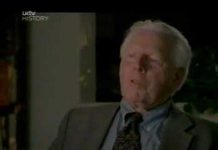The Atomic Cafe, a haunting collage of the 1940s and 1950s United States government propaganda films, presents a unique opportunity for introspection. As we delve into the motivations behind these films and the methods used to deliver their messages, we are forced to confront the very nature of propaganda and its enduring impact on society.
The film, which was released in 1982, serves as a stark reminder of a time when fear and uncertainty were used as powerful tools to manipulate public opinion. Through a seamless blend of government-issued newsreels, advertisements, and educational films, The Atomic Cafe presents a disturbing picture of a society under siege, where the threat of nuclear war loomed large and the government used every means at its disposal to reassure the public that the atomic bomb was not a threat to their safety.
At the heart of this propaganda machine was a calculated effort to control the narrative and shape public opinion. The government’s use of reassuring imagery and slogans, coupled with selective editing of footage and information, was designed to convey a sense of calm and control in the face of a rapidly evolving global landscape.
This film is a testament to the power of propaganda and its ability to shape our perceptions of the world around us. In a world where information is readily available, it is easy to take for granted the power of media to shape our beliefs and attitudes. However, The Atomic Cafe is a powerful reminder that propaganda has always been and continues to be a tool used by those in power to maintain their hold on the masses.
As we look back at the methods used in The Atomic Cafe, it is important to consider the lessons we can learn and apply to the present day. In a world where media literacy is increasingly important, it is crucial that we are able to distinguish between fact and fiction and to be critical of the sources of information that shape our beliefs.
The Atomic Cafe serves as a cautionary tale about the dangers of propaganda and the importance of media literacy. It is a film that challenges us to think critically about the information we consume and to question the motivations behind the messages we receive. Whether you are a student of history or simply someone interested in the power of media, this film is a must-see.

































